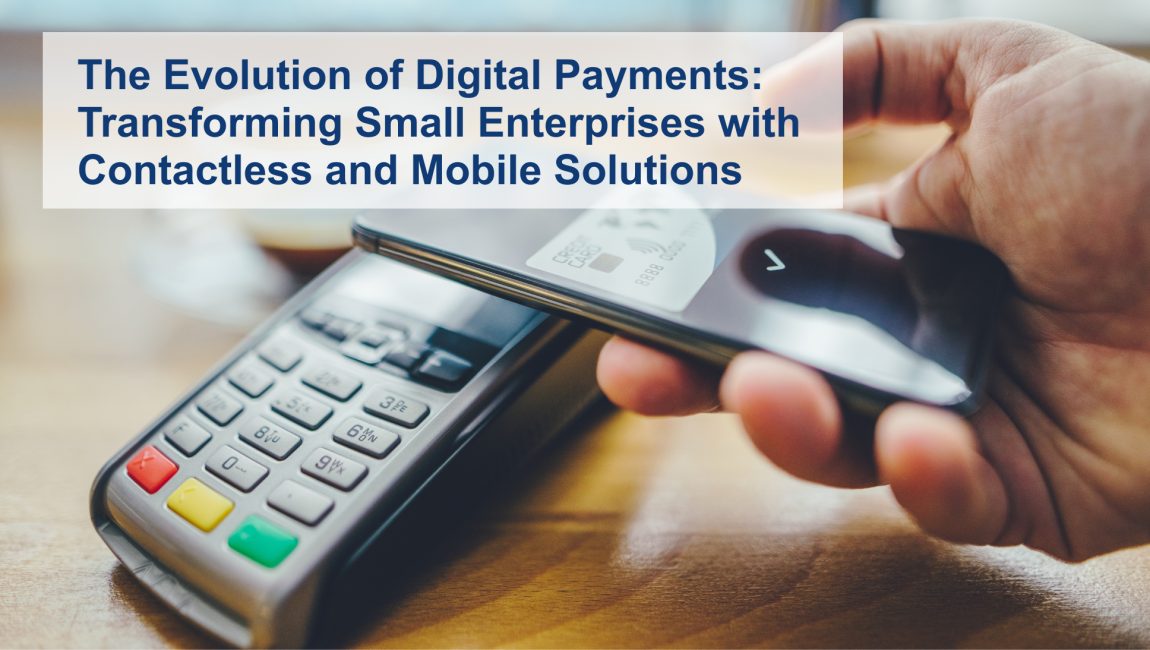The ever-evolving business landscape has undergone a revolution fuelled by digital payments, presenting a crucial element in how companies operate. Leading this charge are Micro, Small and Medium-sized Enterprises (MSMEs) who utilize cutting-edge technology to enhance their operations, elevate customer satisfaction and to stay ahead of the competition.
Contactless Payment Trends for Small Enterprises
The popularity of contactless payments has soared, as people prioritize expediency and convenience in their transactions.
To keep up with their customers’ changing tastes, small businesses are incorporating wireless payment methods such as Near Field Communication (NFC) and Quick Response (QR) codes into their operations.
Customers can swiftly complete transactions by tapping or bringing NFC-enabled devices like smartphones and contactless cards near compatible terminals. This not only speeds up the process, but also increases customer satisfaction and offers a safer option in today’s global health environment.
In the realm of small businesses, QR codes have become a ubiquitous means of payment. With the ability to pay by scanning a code with their phone, customers can easily complete purchases without the need for additional hardware. This cost-effective and convenient option has become a go-to for both businesses and customers alike.
Digital Payment Solutions for SMEs
Small businesses face unique challenges in digital payments, but fintech companies and payment service providers offer innovative tools to meet these needs.
Here are key digital payment options for small businesses:
- Mobile Point of Sale (mPOS) Systems: These offer a convenient and inexpensive way for small businesses to accept card payments on-the-go. Utilizing smartphones and tablets, these systems transform into secure payment terminals, making them ideal for those seeking simple setup.
- E-Commerce Platforms: This digital payment option not only provides a secure payment method, but also opens up the opportunity to reach a global customer base. Going online and offering secure payment methods allows small and medium-sized businesses to connect with customers worldwide.
- Invoice and Billing Solutions: Utilizing digital solutions for billing and invoicing can significantly speed up payment cycles and reduce administrative costs. The automation features ensure the accuracy and efficiency of financial transactions.
- Integrated Payment Systems: These systems make it possible to manage transactions, inventory and customer information all in one place. Seamlessly integrating with existing business software, these systems provide convenience and ease for small businesses.
Mobile Payments for SMEs
The rise of mobile purchases, largely due to smartphone convenience, is impressive. Small businesses can use mobile payment options to make purchases easier and improve the customer experience.
Here are a few key factors about mobile payments for small businesses:
- Digital Wallets: Many mobile payment solutions support digital wallets, enabling individuals to securely store credit card details on phones. This feature can also be integrated into the systems of small to medium-sized businesses, streamlining the payment process for safety.
- Peer-to-Peer (P2P) Transactions: Mobile payment apps facilitate effortless peer-to-peer transfers, enabling businesses to receive payments or settle outstanding bills. Small businesses that prioritize customer satisfaction will greatly benefit from this feature.
- In-App Payments: Businesses with custom mobile applications can integrate in-app payment capabilities, allowing customers to make purchases without exiting the app. This not only streamlines the process for users, but also increases the chances of repeat business.
Conclusion
The ever-evolving landscape of digital payments is revolutionizing the way small businesses operate, making it imperative for them to adapt to thrive in today’s fast-paced business environment. With the emergence of contactless payments, specialized digital payment systems catered towards small businesses and the popularity of mobile payments, technology is reshaping the way businesses conduct transactions. Embracing these innovations can enable small businesses to effectively address the evolving preferences of their customers and position themselves for long-term success in the digital era.

